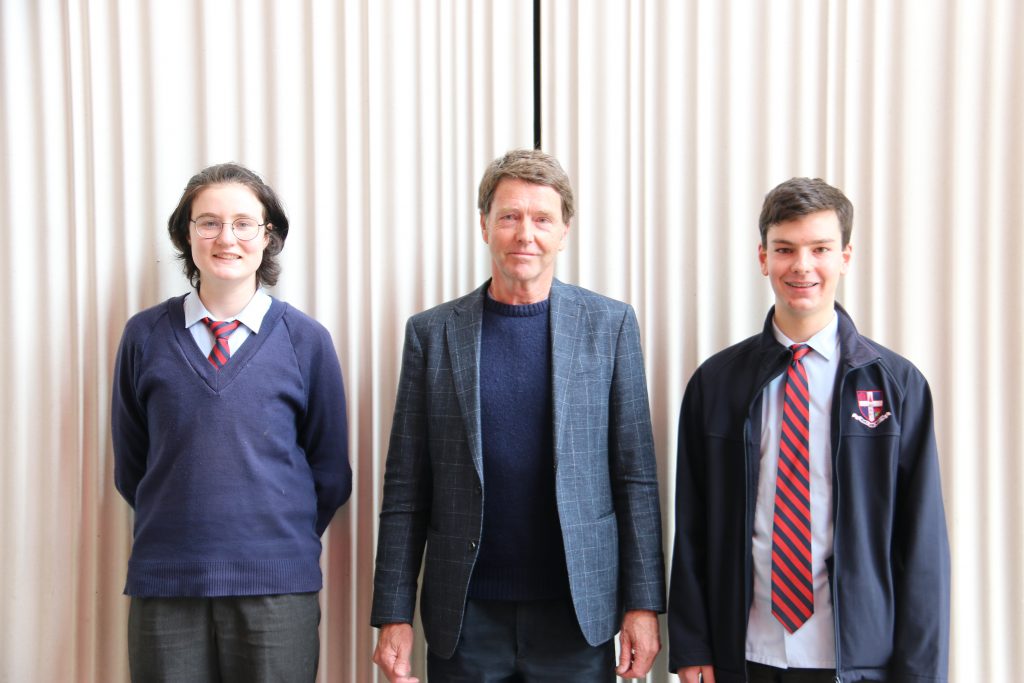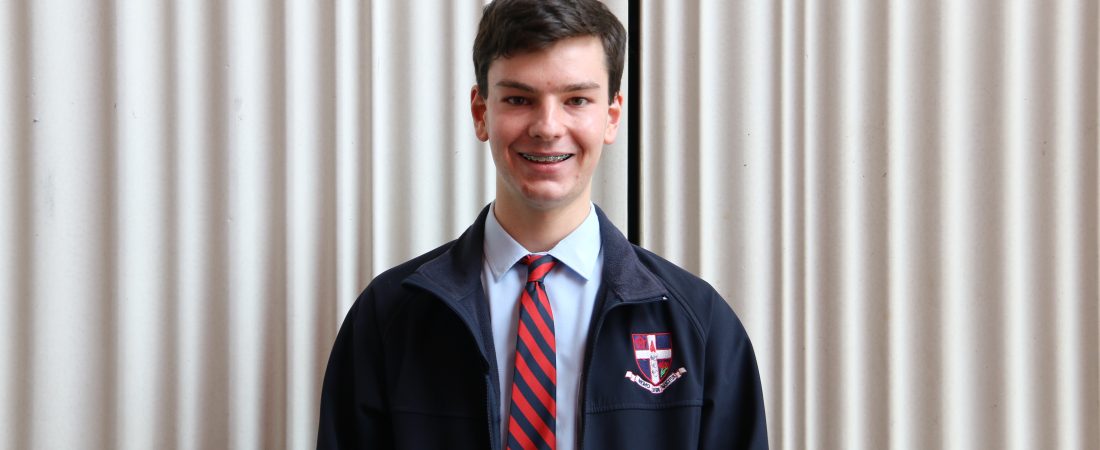Mary Stanfield Public Speaking Competition
Posted on October 26, 2021
Mary Stanfield was a stalwart of The Friends’ School; she gave devoted and loyal service during her 36 years as a teacher at the School (from 1927 – 1963). Mary was a teacher of English and a lover of Drama and she was instrumental in the introduction of literary evenings that were held every Friday during the winter term at the School. Mary was affectionately known to generations of Friends’ Students as “Stanna” and was known (during her time as Senior Mistress) to give the new girl prefects a little talk that included the phrase “you must be above reproach”.
As well as fostering her students’ love of literature and drama, Mary was very interested in public speaking, donating an honour board in 1956 for the then Year 11 Lecturettes.
The Mary Stanfield Prize continues to this day as a prestigious prize at Friends’ for Year 10 speakers. The honour board hangs in the stairwell of North Block (at the High School campus).
This year we had two students speak on the topic of “Isolated from Humanity” in the hopes of winning the Mary Stanfield Prize.
You can read the winning entry by Felix Churchill below. Congratulations Felix!

Disconnect by Felix Churchill
Just google it. Did you know that 63,000 google searches are made every second? That’s 5.6 billion searches a day and around 2 trillion searches a year. It seems hard to imagine a world without the convenience of the internet. Constant communication, constant messages, always plugged in. We are more connected than we have ever been. Connected to each other, connected to the world.
Yet only 25 years ago, the world that we live in couldn’t have been more different. Even Google had not yet been created (yes, I googled that too) and communication over distance was made mainly by phone, fax and mail (the physical kind). Within this short period of time, the shift toward the online world has drastically altered the nature of our human interactions.
Firstly, the platform of the internet promotes behaviours that limit face to face interaction. Whether that be silent bus rides or quiet cafes, family dinner without the family discussion or summer holidays spent online and not on the beach. Living out of the moment, disconnected from reality, we are slowly losing the art of social interaction.
Secondly, gaps in digital literacy threaten to further isolate vulnerable groups. Think of your grandparents and isolated communities in third world countries. These are groups who typically don’t have the same access or exposure to the resources essential in an online world. Born into the internet, as is often described of my generation, we learnt the language of technology alongside our mother tongue. We send emails as second nature, we have no trouble typing text on a tiny keyboard and we know how to navigate our way through the twisting labyrinth of knowledge that the internet holds. Digital literacy is taken for granted, an essential part of our society, it is required to navigate today’s world. The proposition is simple: learn to adapt or be left in the dark, isolated.
Thirdly, the internet gives us a platform to act in ways not acceptable in person. Hiding behind an anonymous username, bullying, death threats, verbal abuse, all litter comment sections. They plant seeds of insecurity that bloom into vines of hatred. Communication without compassion, without empathy, without accountability, bullying into isolation. No longer is the internet a safe place where everyone has a voice, but a hothouse, full of poisonous plants.
In a world where we are more connected than ever, we are simultaneously the most disconnected we have ever been. In a world where social interaction is withering away, developments in technology are ever racing ahead and leaving vulnerable groups behind, and where faces are simply profile pictures and not the person behind, we are living in a world where we are not only disconnected, but isolated from humanity.
Looking back, only 25 years ago, who could have foreseen the impact that the internet would have on the future? Who could have predicted that it could become a platform for unity and equality by giving a voice to the silent? But unfortunately, it has also become a mode of isolation.
Looking 25 years into the future, what if we embrace a new revolution. A vision of a world where we relearn to interact with each other in the moment. Where we unlearn the tempting habit to glance down at our smartphone rather than glance up and start a conversation.
The internet is here to stay, but our lack of face to face interaction, lack of digital literacy for some and lack of accountability for anonymous unjustified abuse needs to change. In order to achieve this, we need to find a balance between the virtual and the real world. We must disconnect from being disconnected in order to reconnect with humanity.
I would like to end this speech by asking you to start a conversation. How do we strike a balance? While we may not have all the answers, that’s not stopping us from sharing our ideas, face to face. But it’s okay if you’re stuck, or struggling to find the inspiration, you can always just google it.
